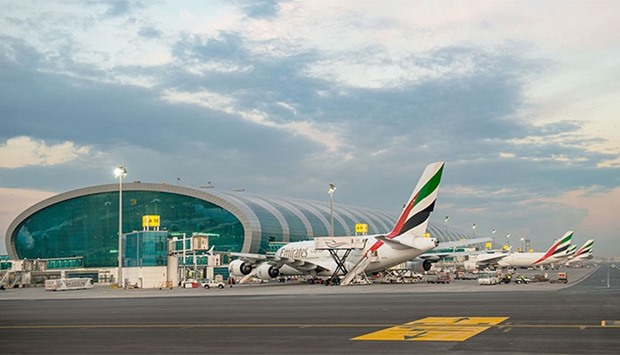Dubai International Airport, the hub for Emirates airline, expects passenger growth to slow over the next eight years due to capacity limitations, the operator's chief executive said on Tuesday.
The world's busiest international airport registered 7.2 percent passenger growth in 2016 to 83.6 million, operator Dubai Airports said in a statement.
It is the airport's second slowest growth rate in at least eight years, according to Reuters calculations. The slowest was in 2014 when runway work limited operations for 80 days.
Growth is forecast to slow further to about 6.5 percent this year to 89 million passengers and growth will be "incremental" to 118 million a year by 2023, Dubai Airports CEO Paul Griffiths said in an interview.
"One of the challenges we've got now is to continue to supply capacity at what is now a very constrained airfield," he said.
Dubai is spending $36 billion expanding a second airport, Al Maktoum International, to handle up to 120 million passengers by 2025 when state-owned Emirates is to move there.
Dubai airport is moving into a "new phase of growth," Griffith said, that will see new processes and technology introduced to increase passenger flow rates in a bid to add capacity. The airport completed its last major infrastructure expansion last May with the opening of a $1.2 billion concourse.
"I don't think we should be at all disappointed with the fact that we are not in double digit territory," Griffiths said. "In absolute terms we will continue to grow at a very impressive rate."
Budget carrier flydubai is to move its operations to a 26 million passenger capacity at Al Maktoum International in the third quarter, which will allow Emirates and other airlines which fly larger aircraft to operate more flights at Dubai airport, Griffiths said.
The development of Al Maktoum International, which opened to passenger traffic in October 2013 and can currently handle around 7 million passengers a year, is expected to increase Dubai's overall passenger numbers.
Dubai airport's forecast of slower growth comes as major Gulf airlines, including Emirates, warn of softer market conditions.
Emirates has said it is restructuring after reporting a 75 percent decline in half-year profit and previously warned it could cut routes.
Griffiths also said that Britain's Brexit vote, increasing rhetoric on protectionism and nationalism globally, and terrorism could also threaten travel growth.
Dubai airport overtook London's Heathrow as the world's busiest international airport in 2014 and has since set its sights on overtaking Atlanta and Beijing as the world's busiest by 2020.

Dubai airport's forecast of slower growth comes as major Gulf airlines, including Emirates, warn of softer market conditions.
